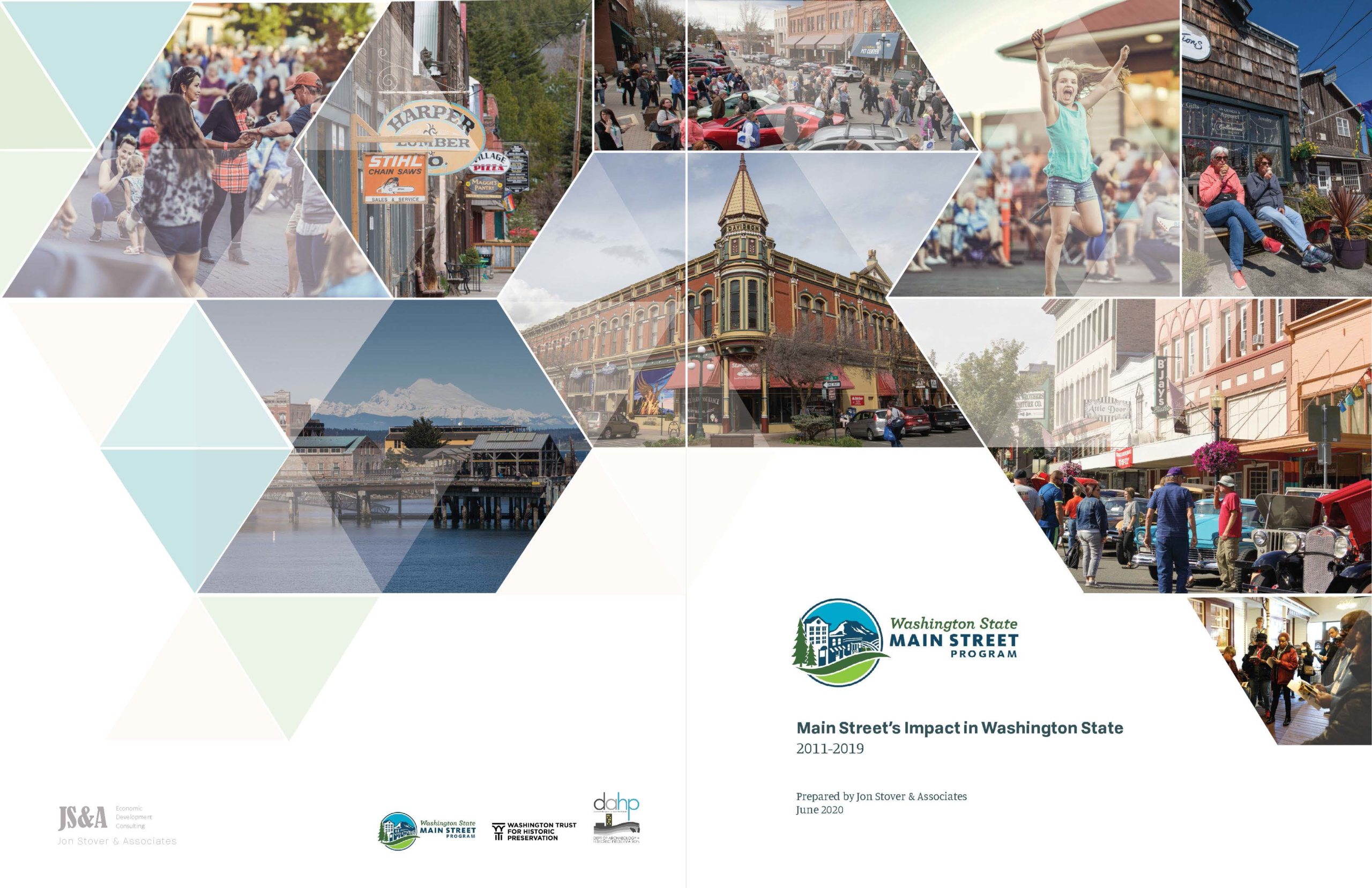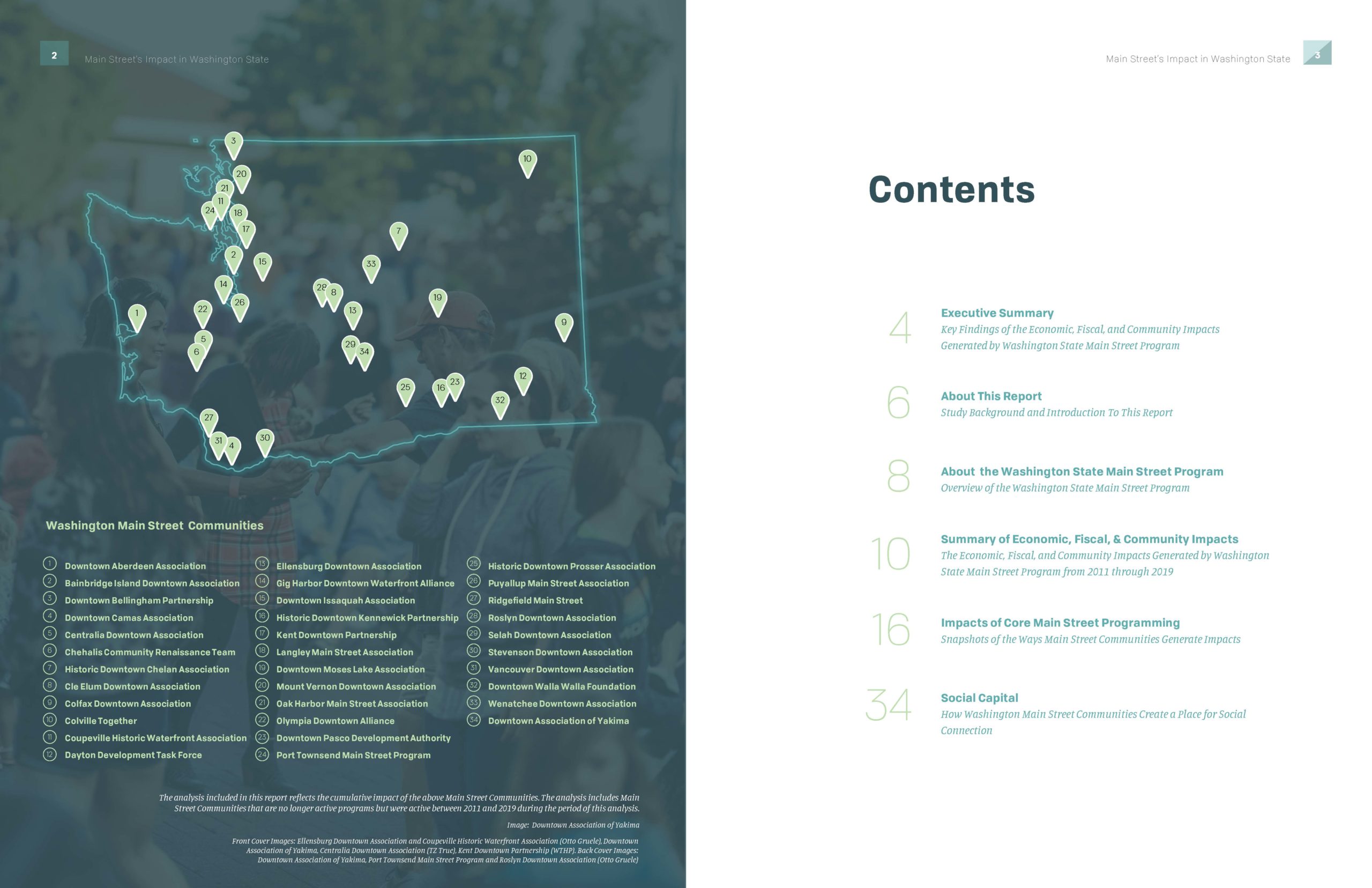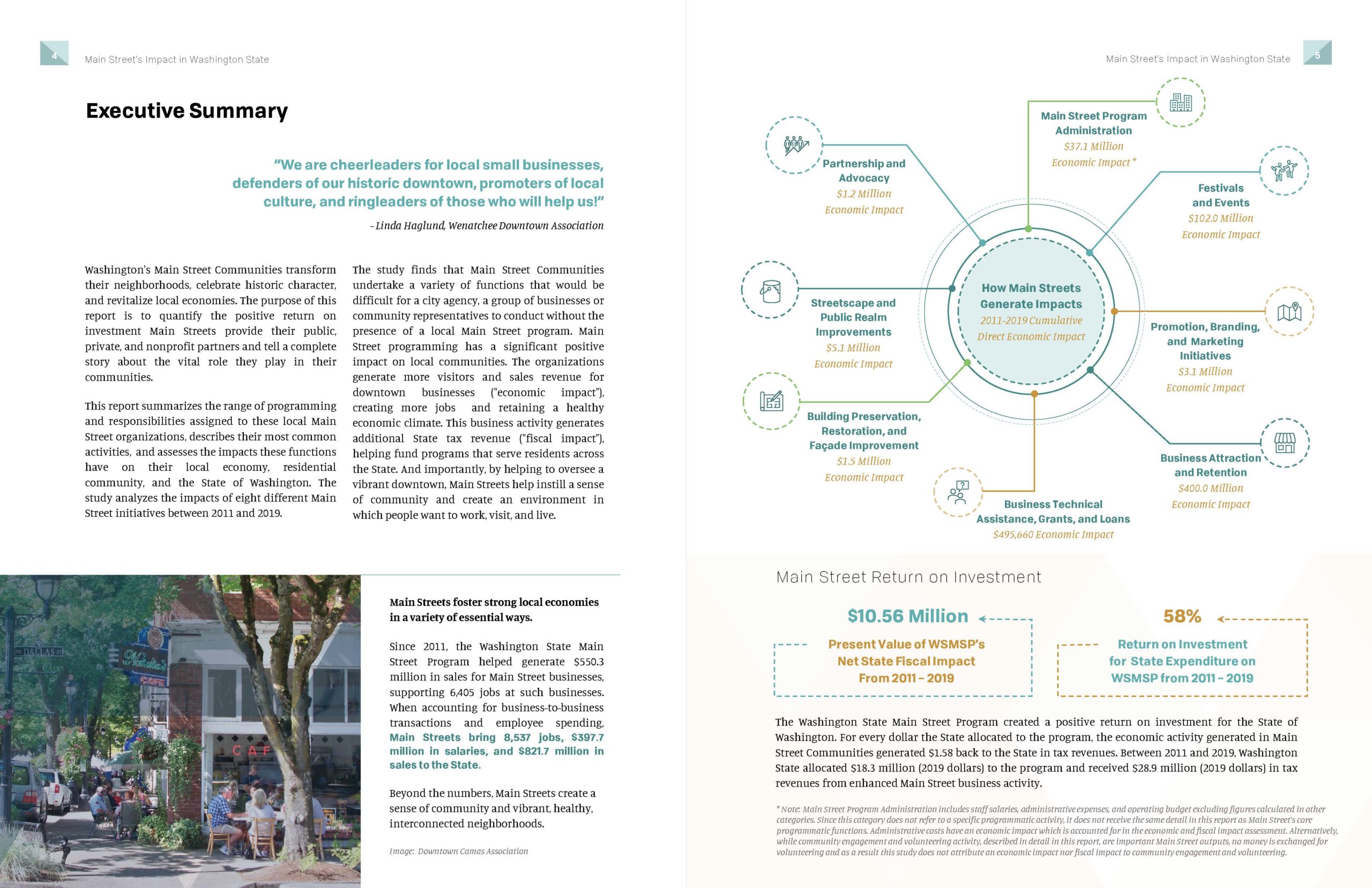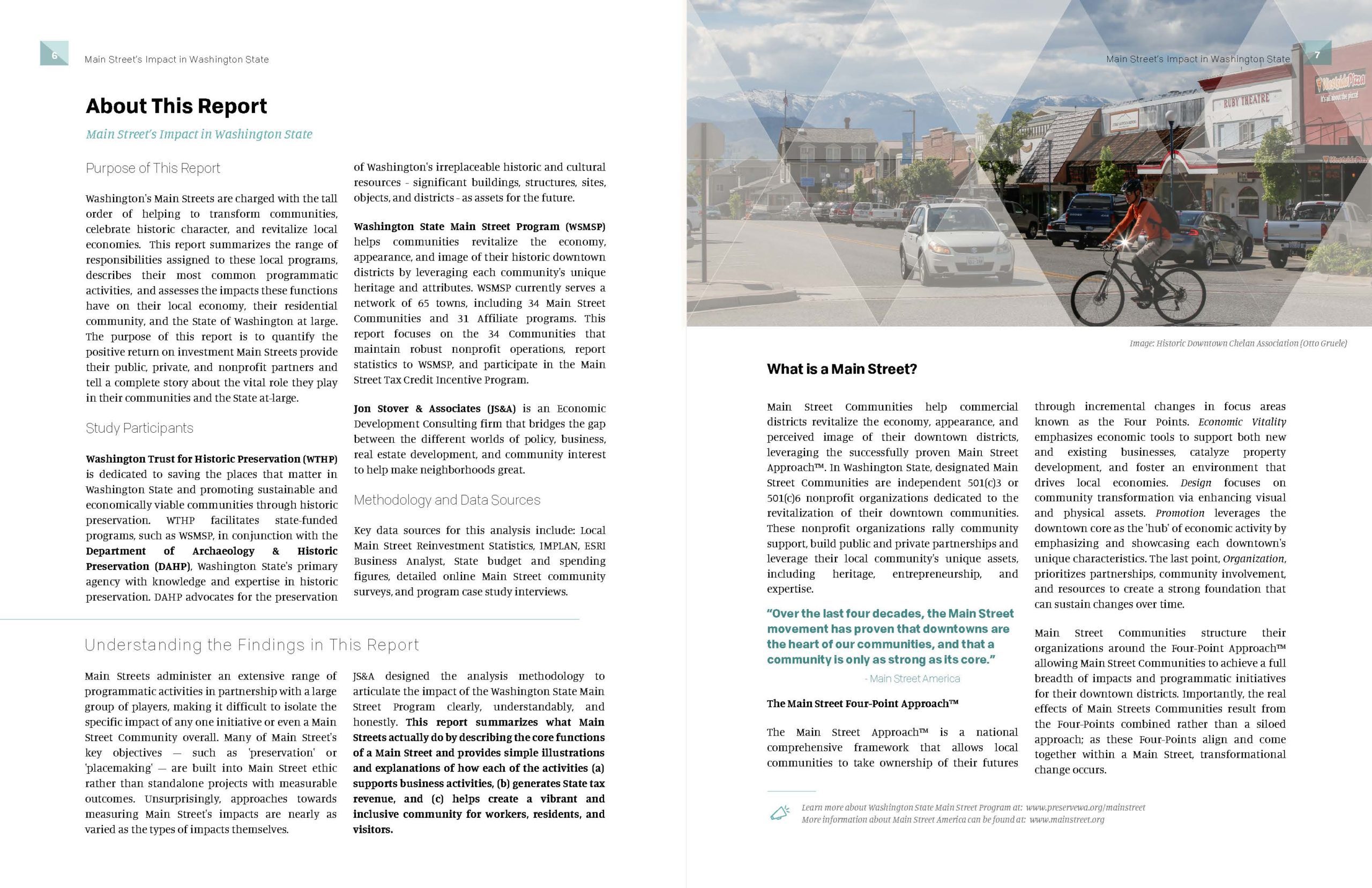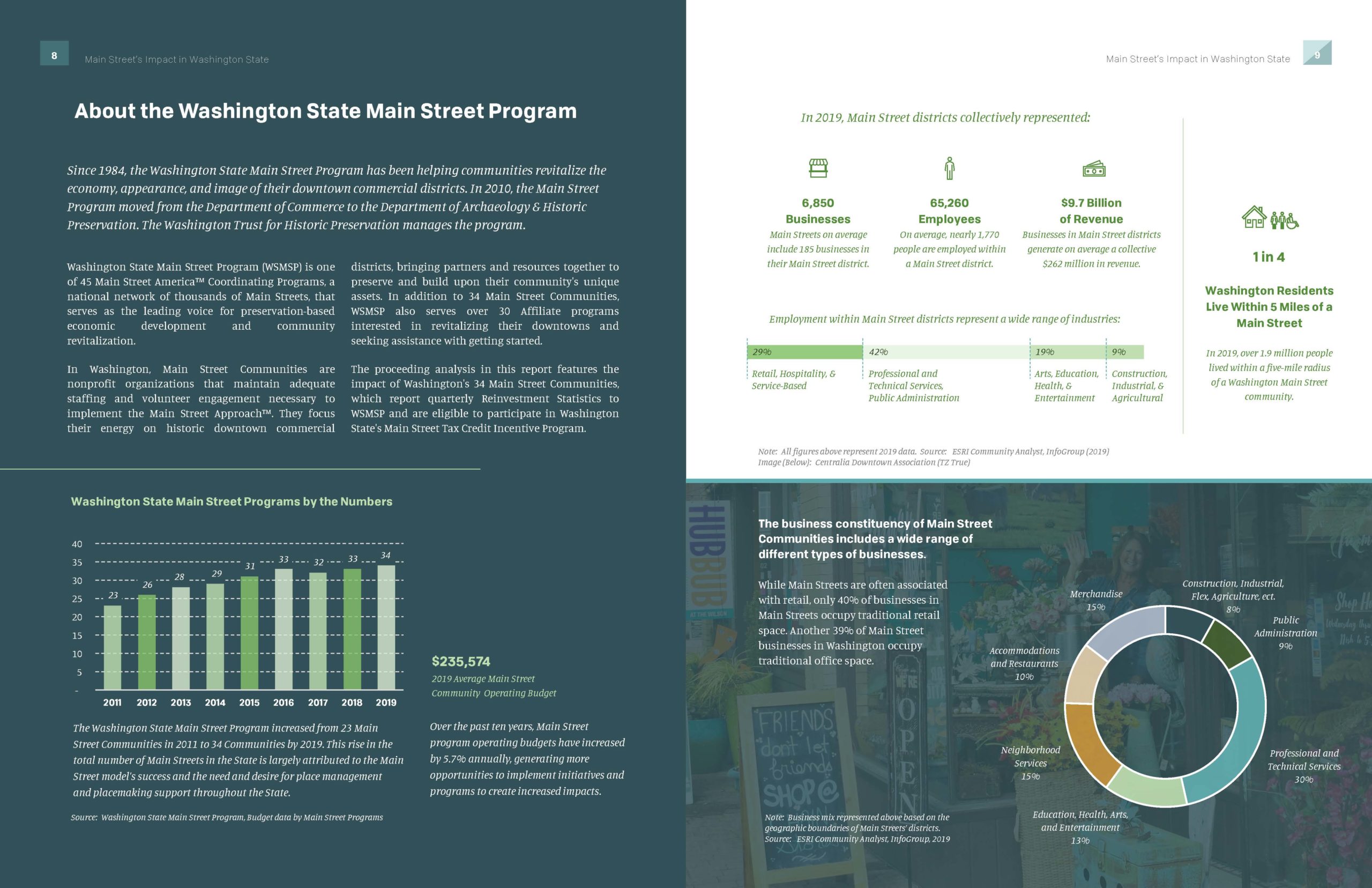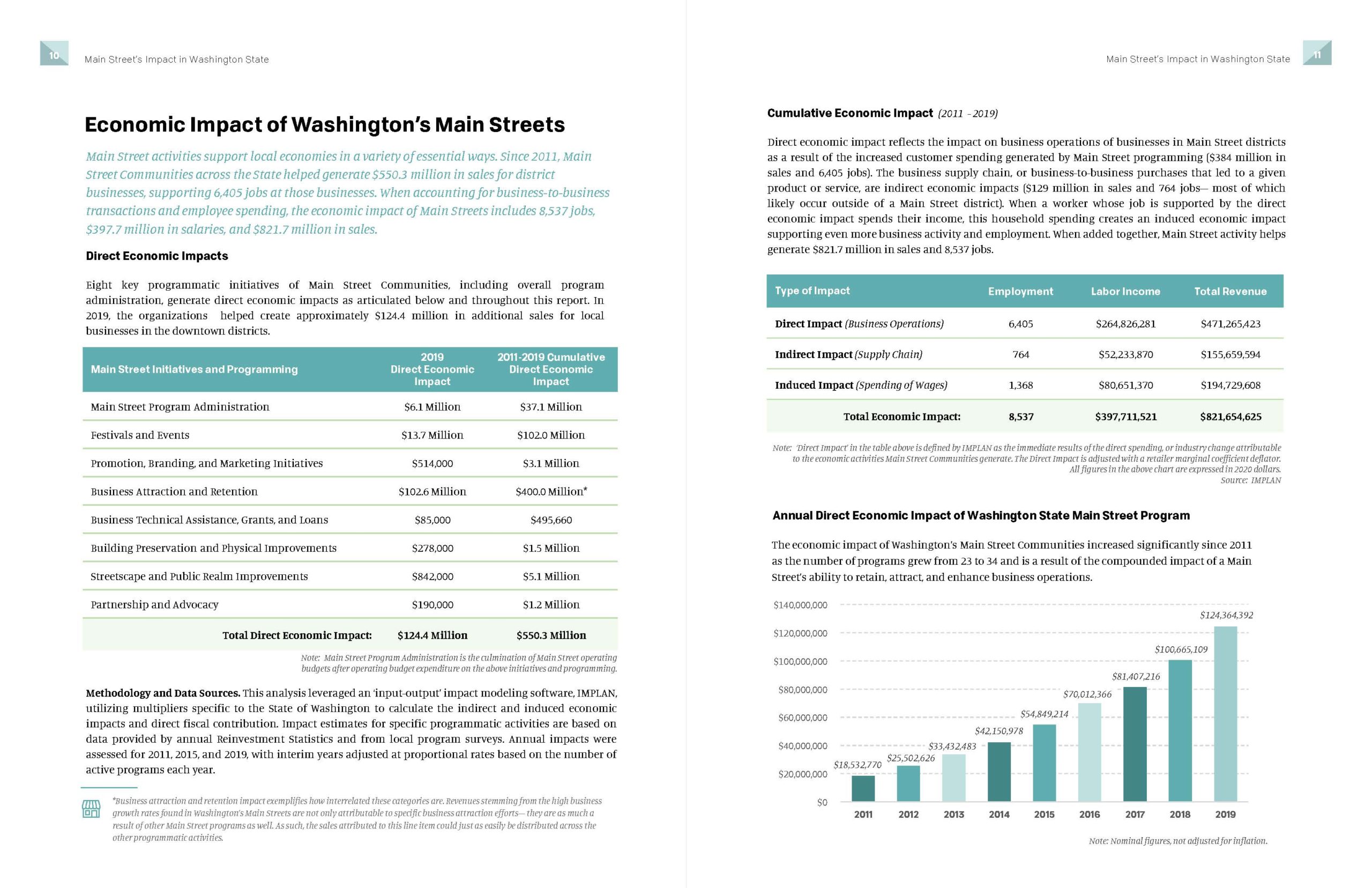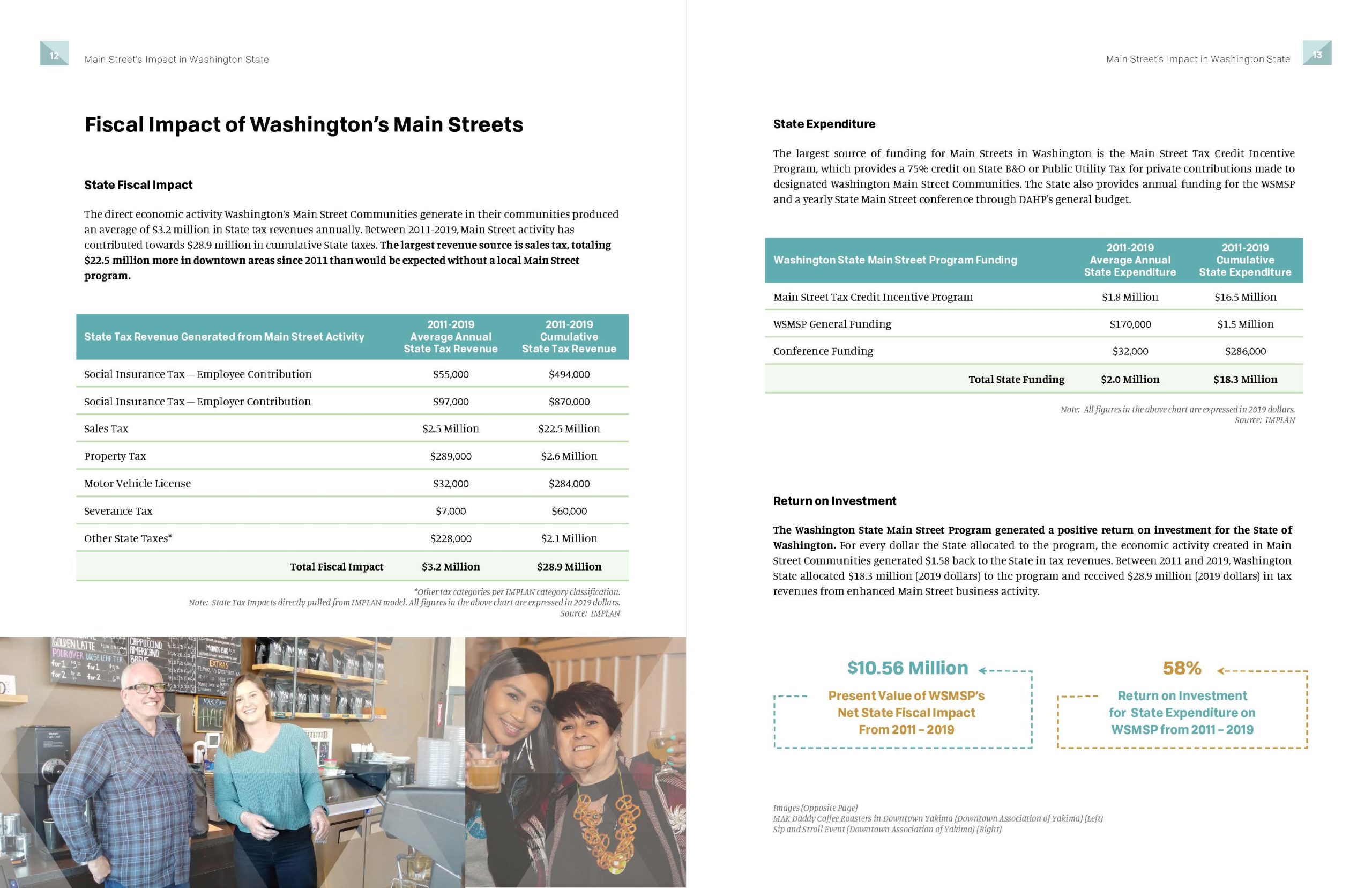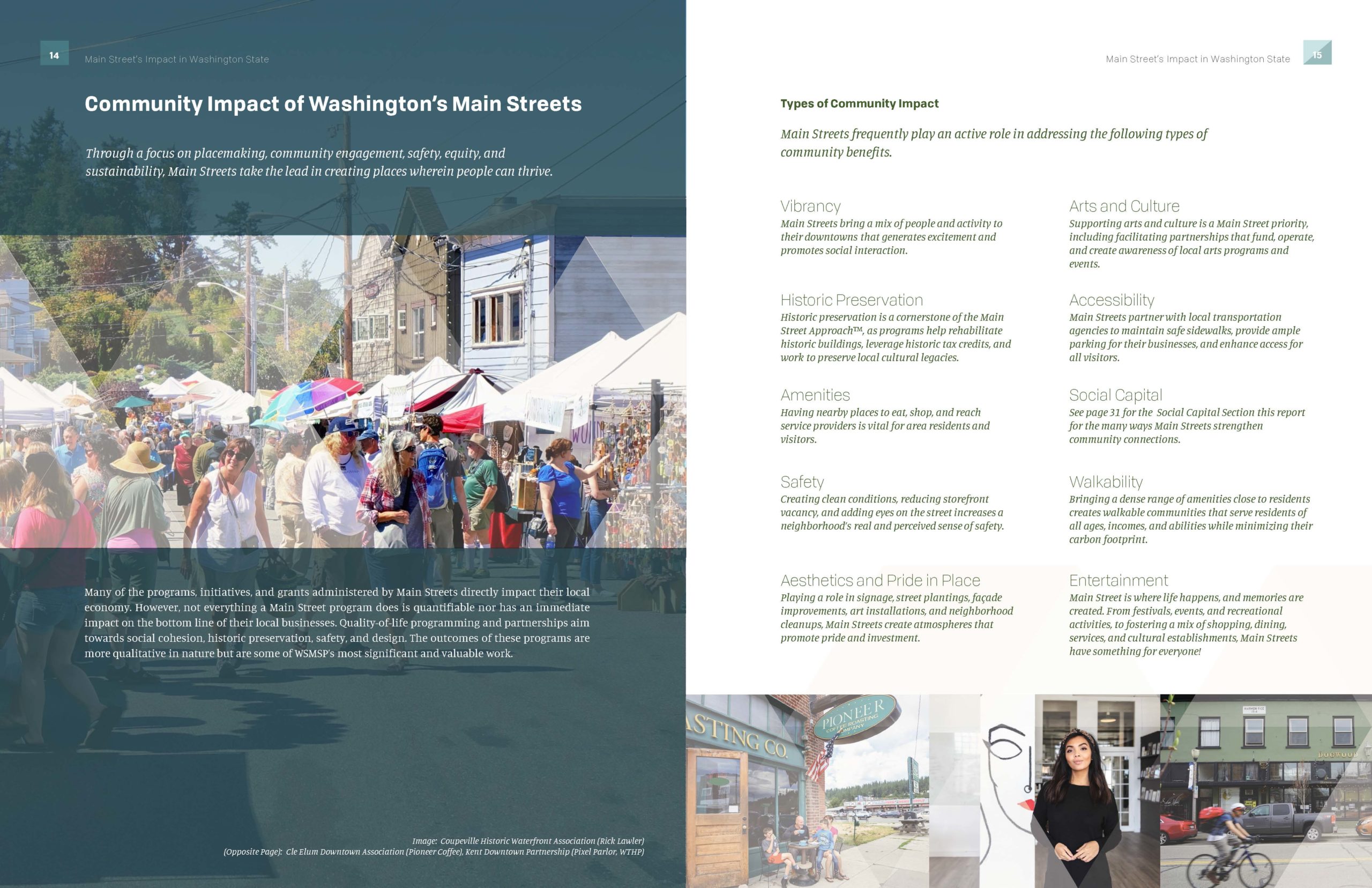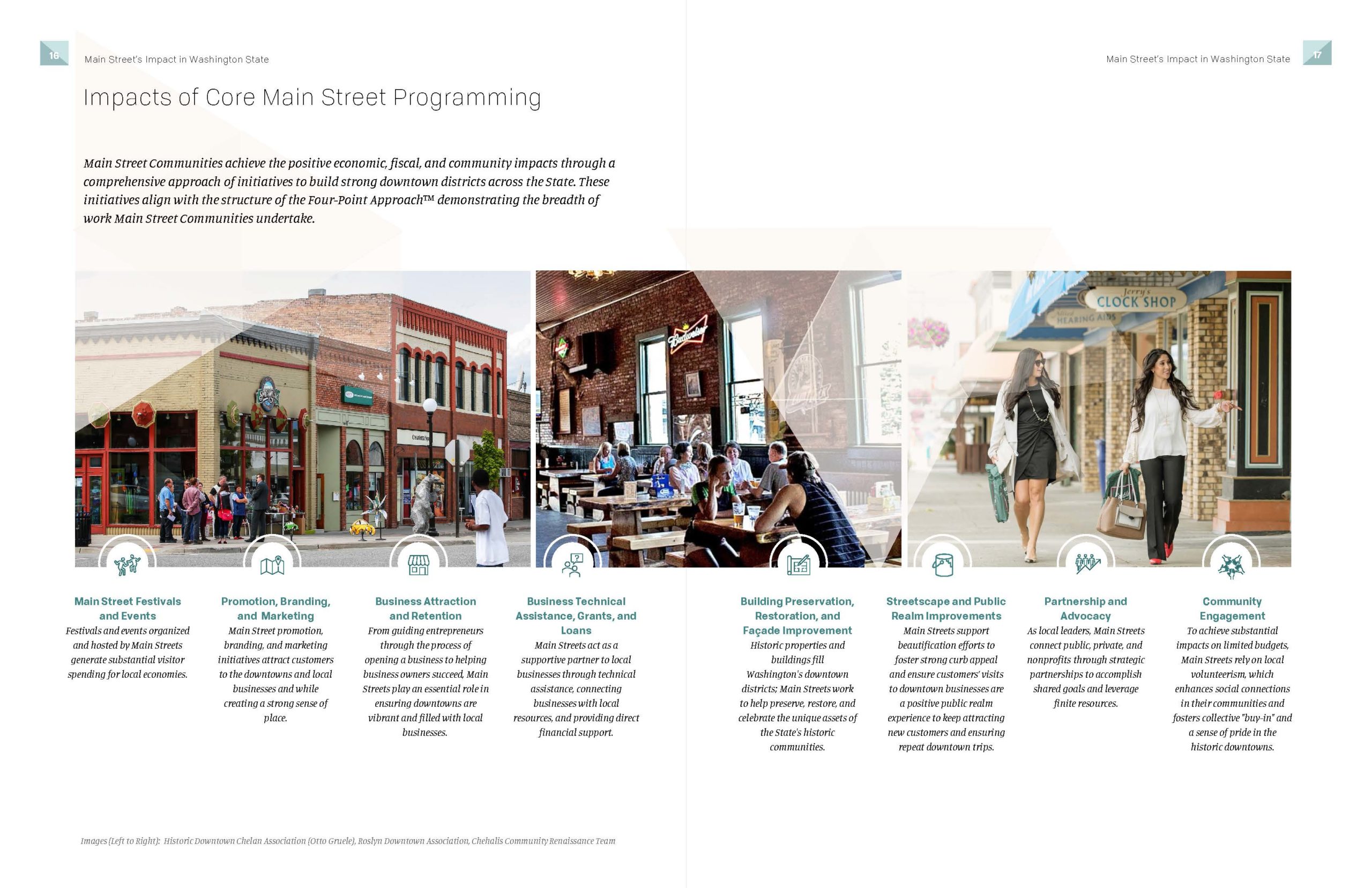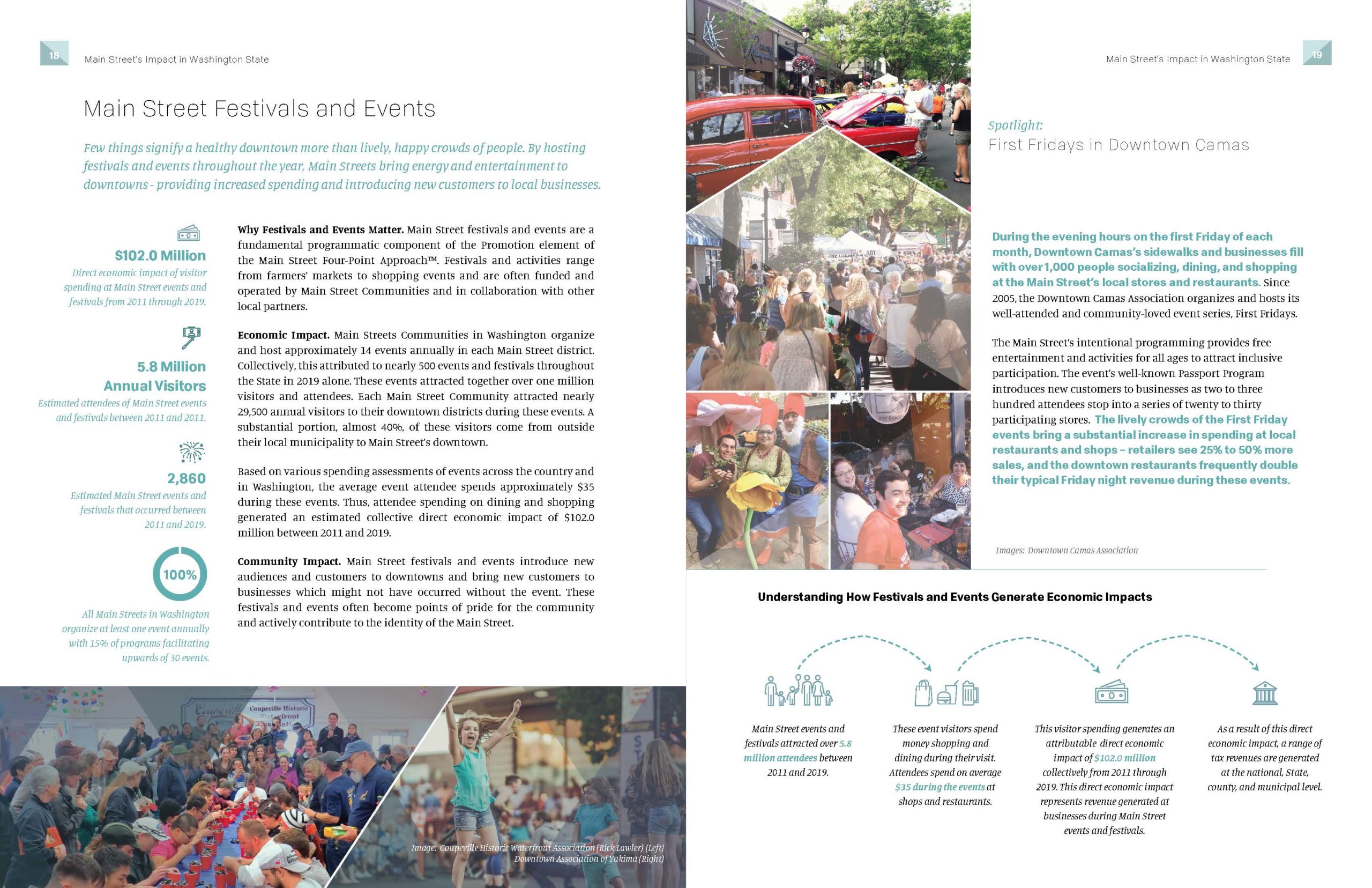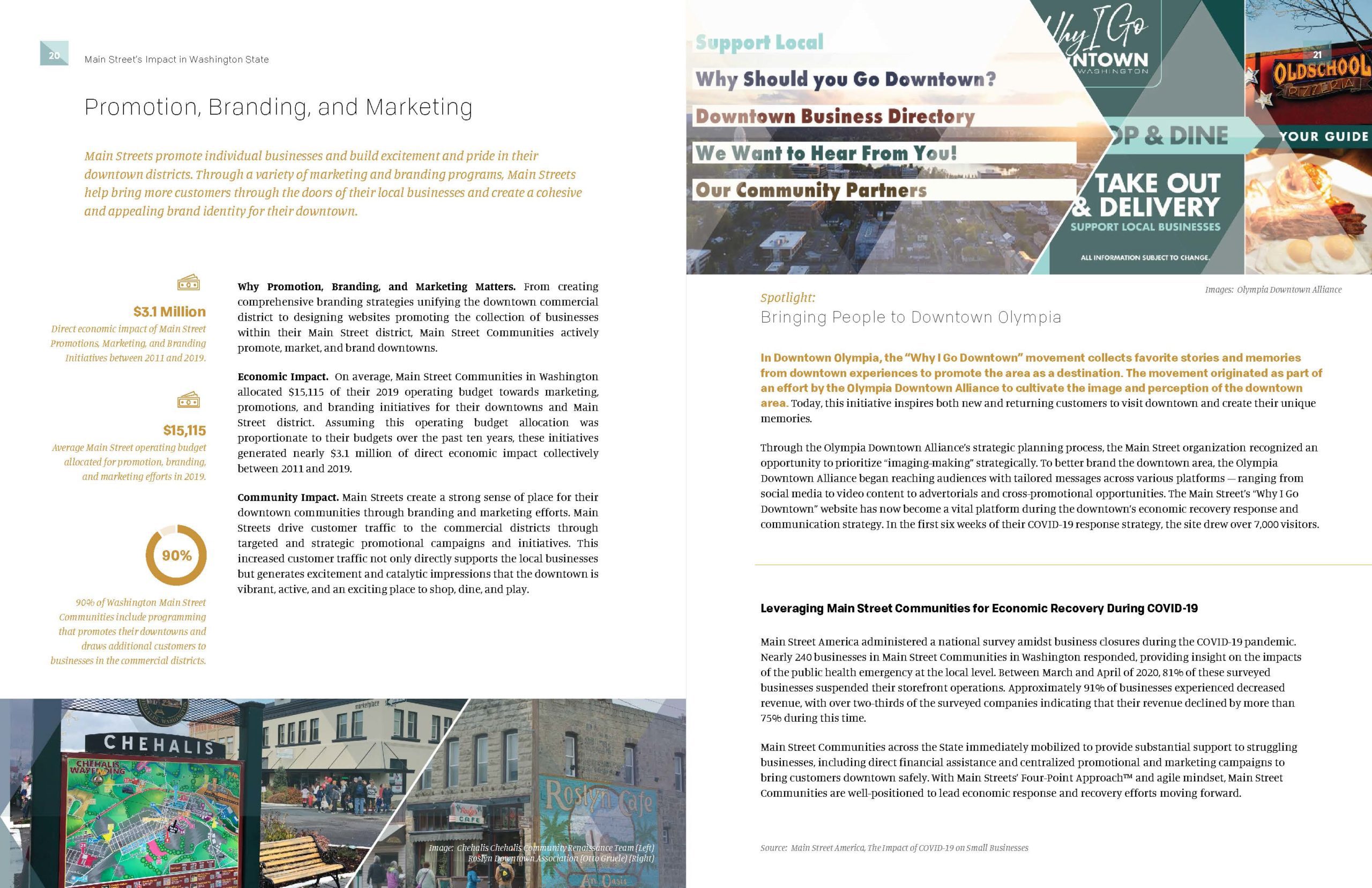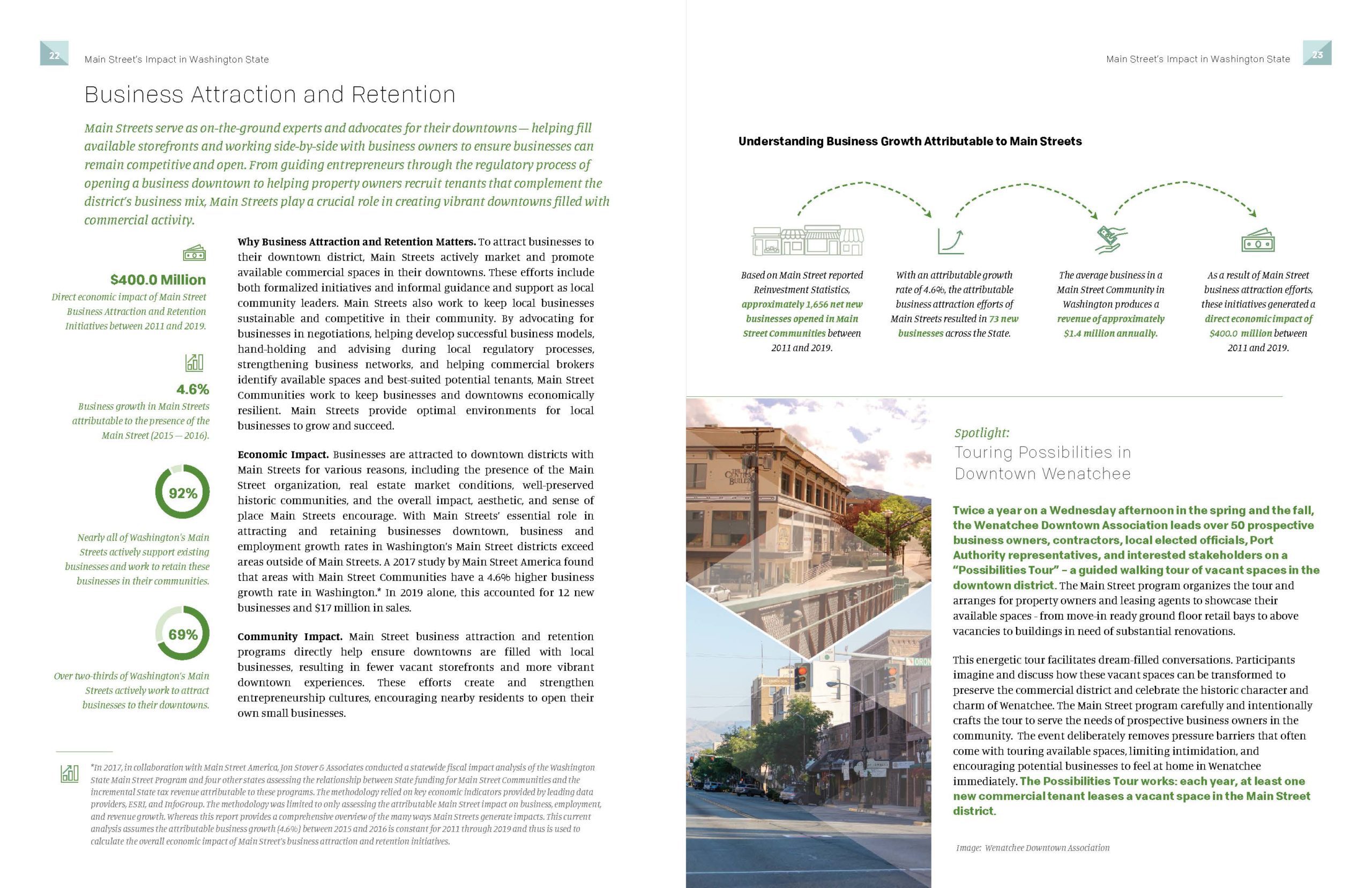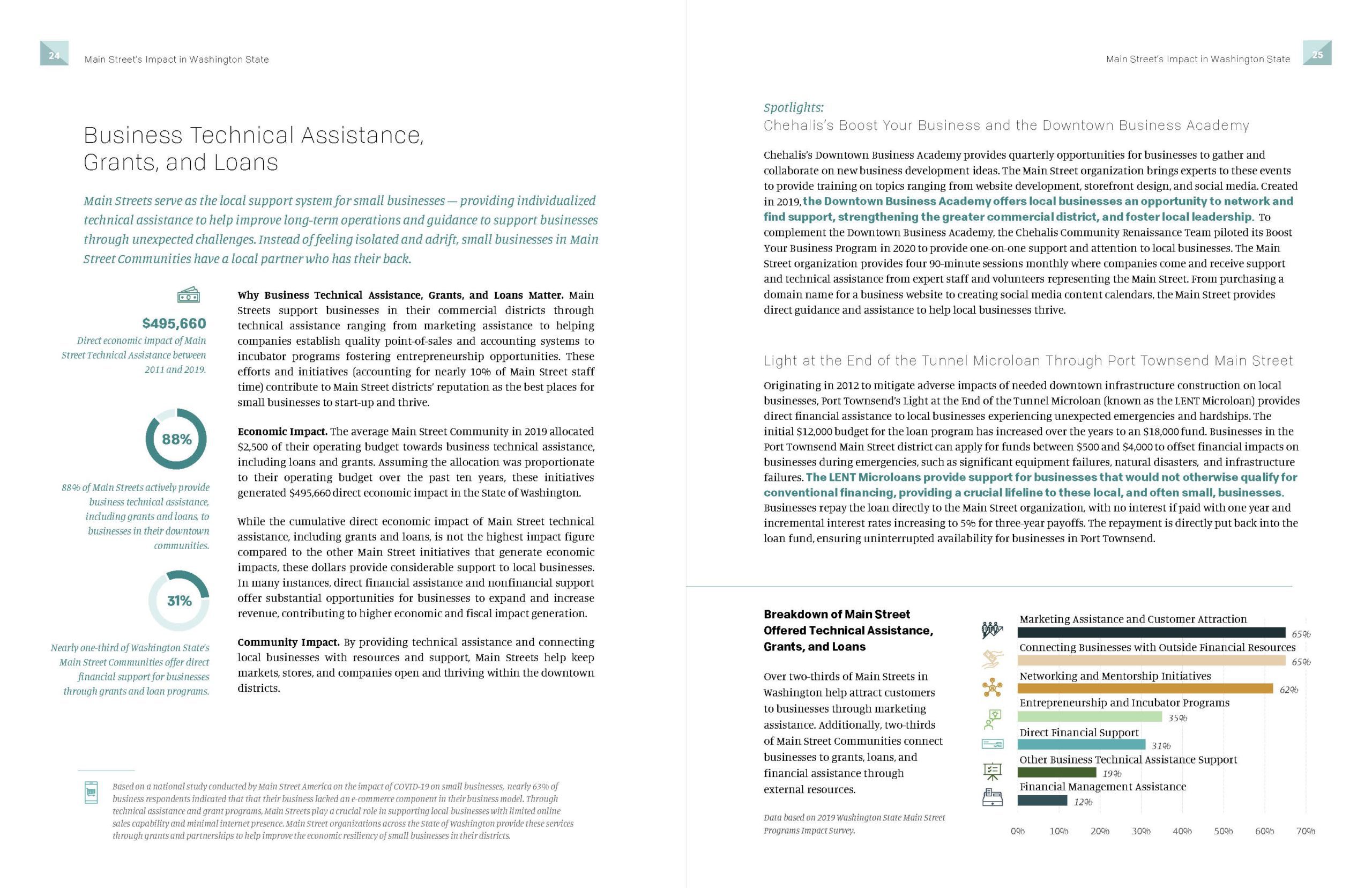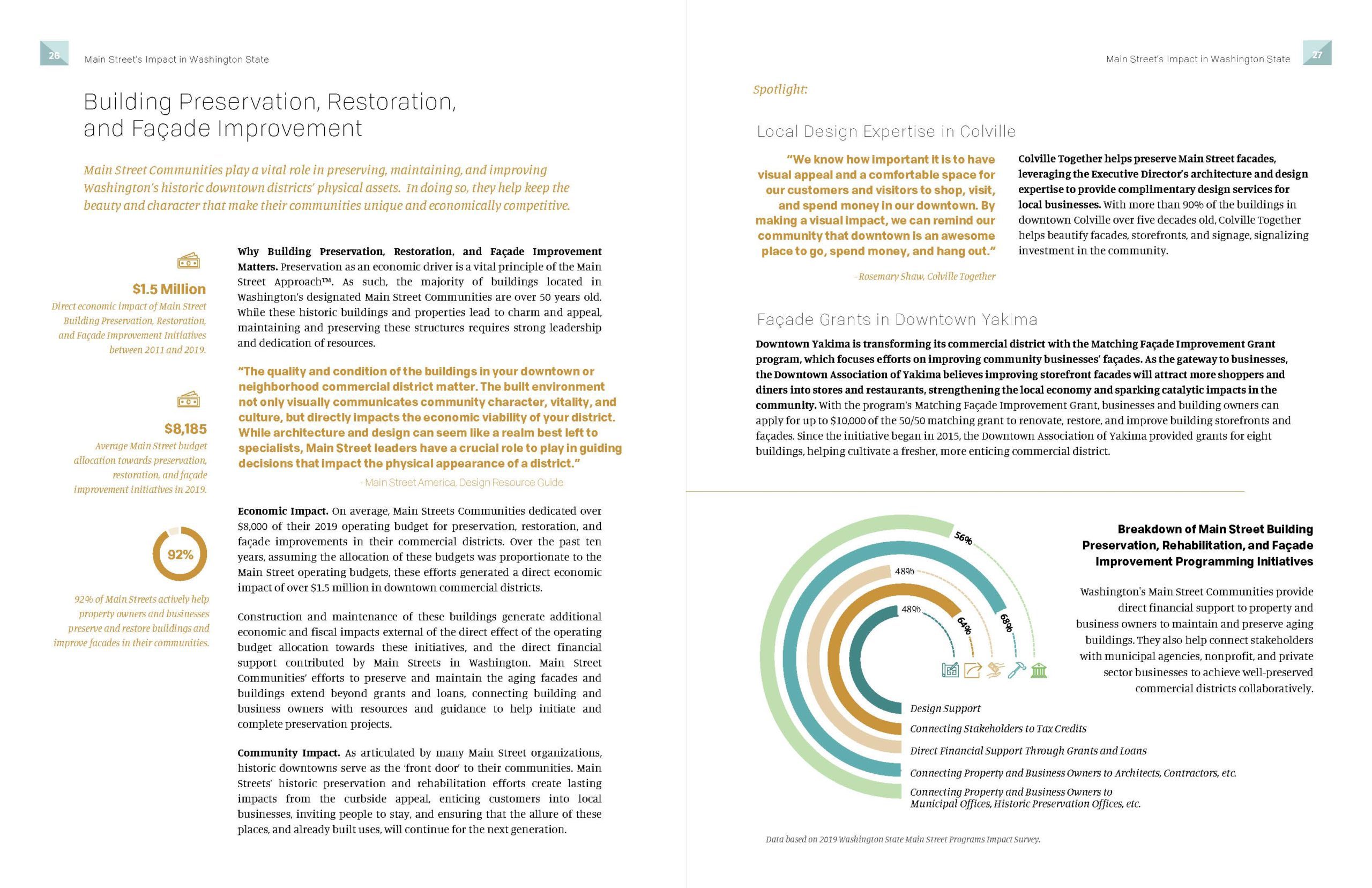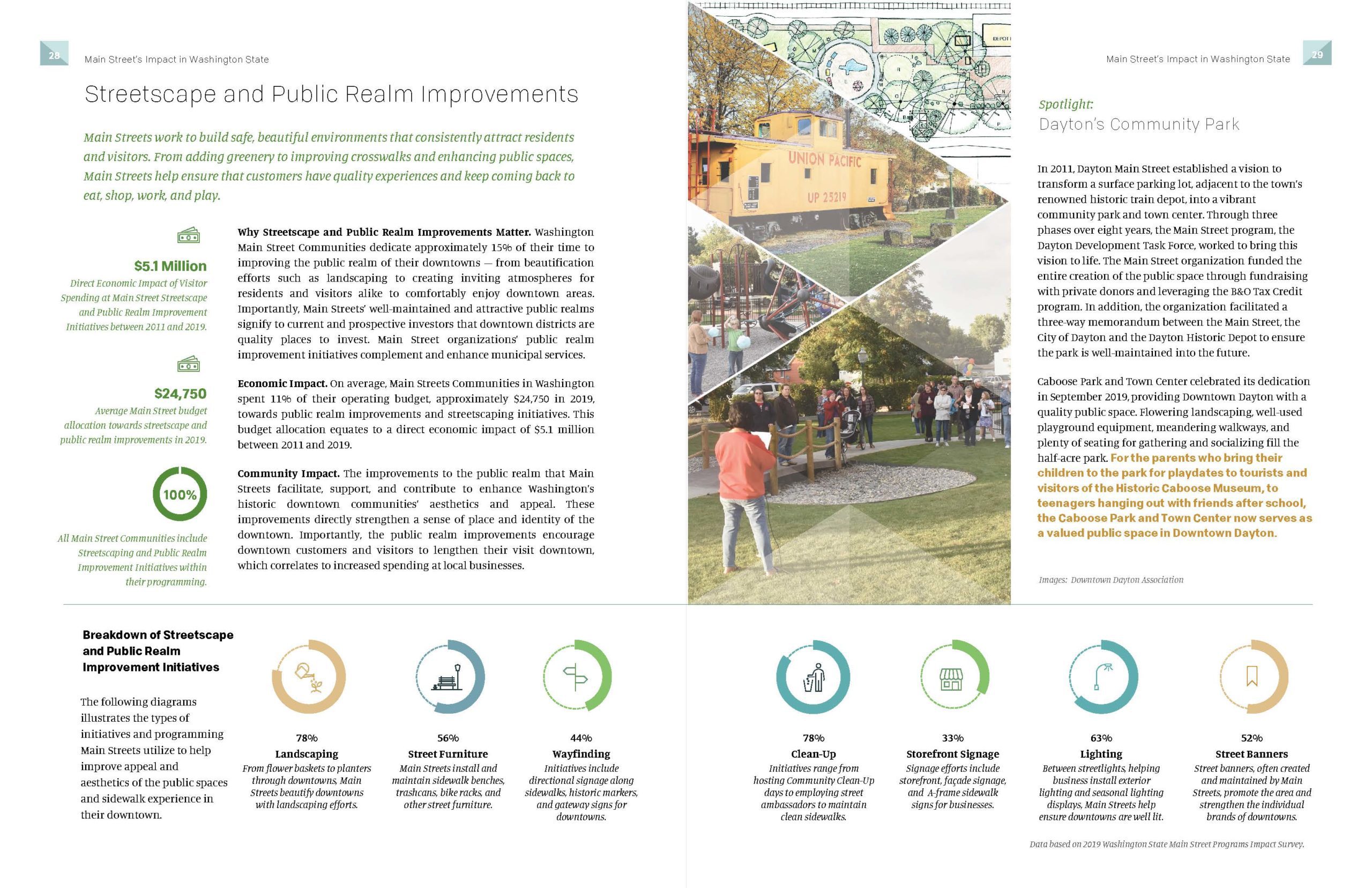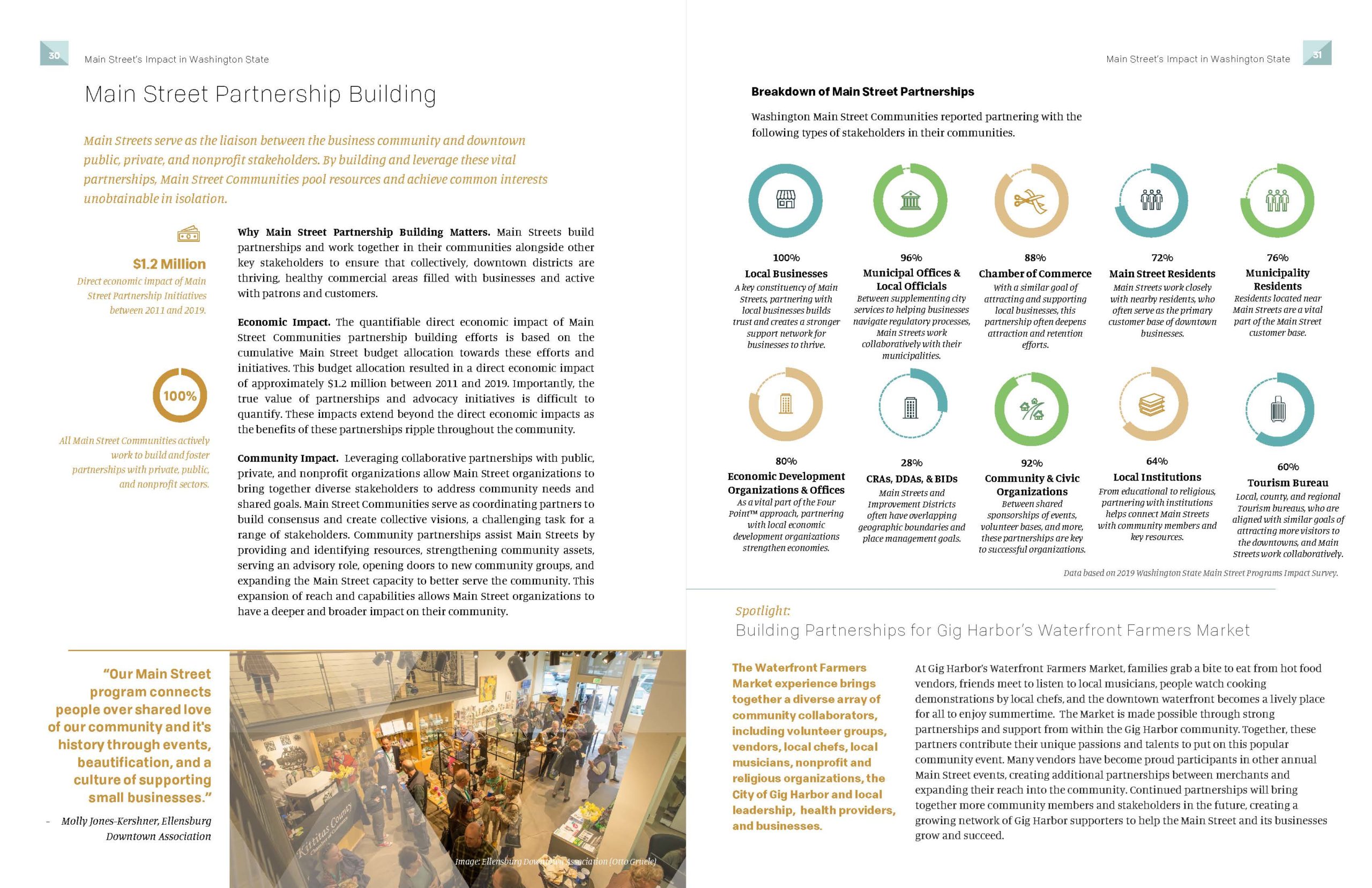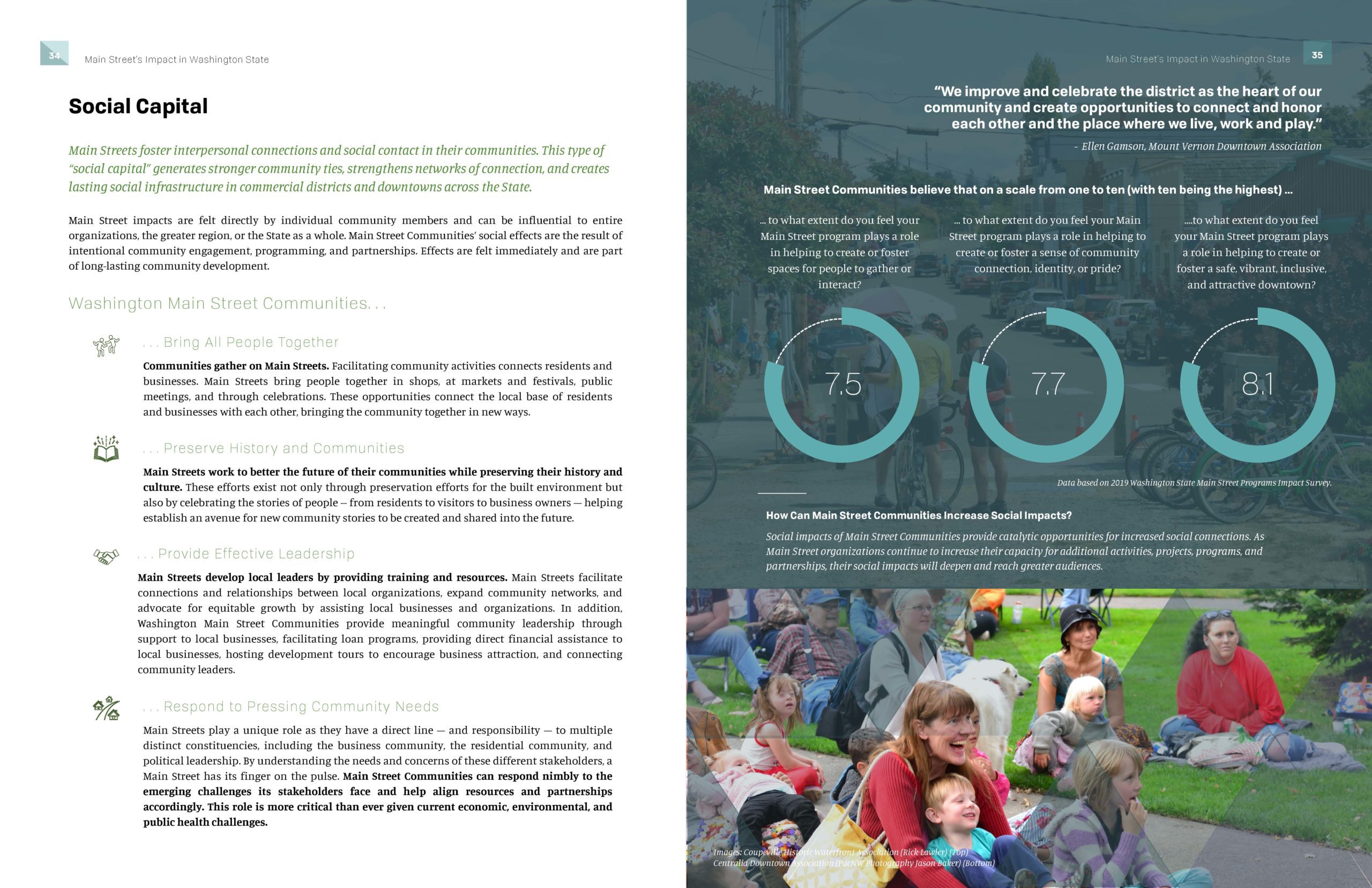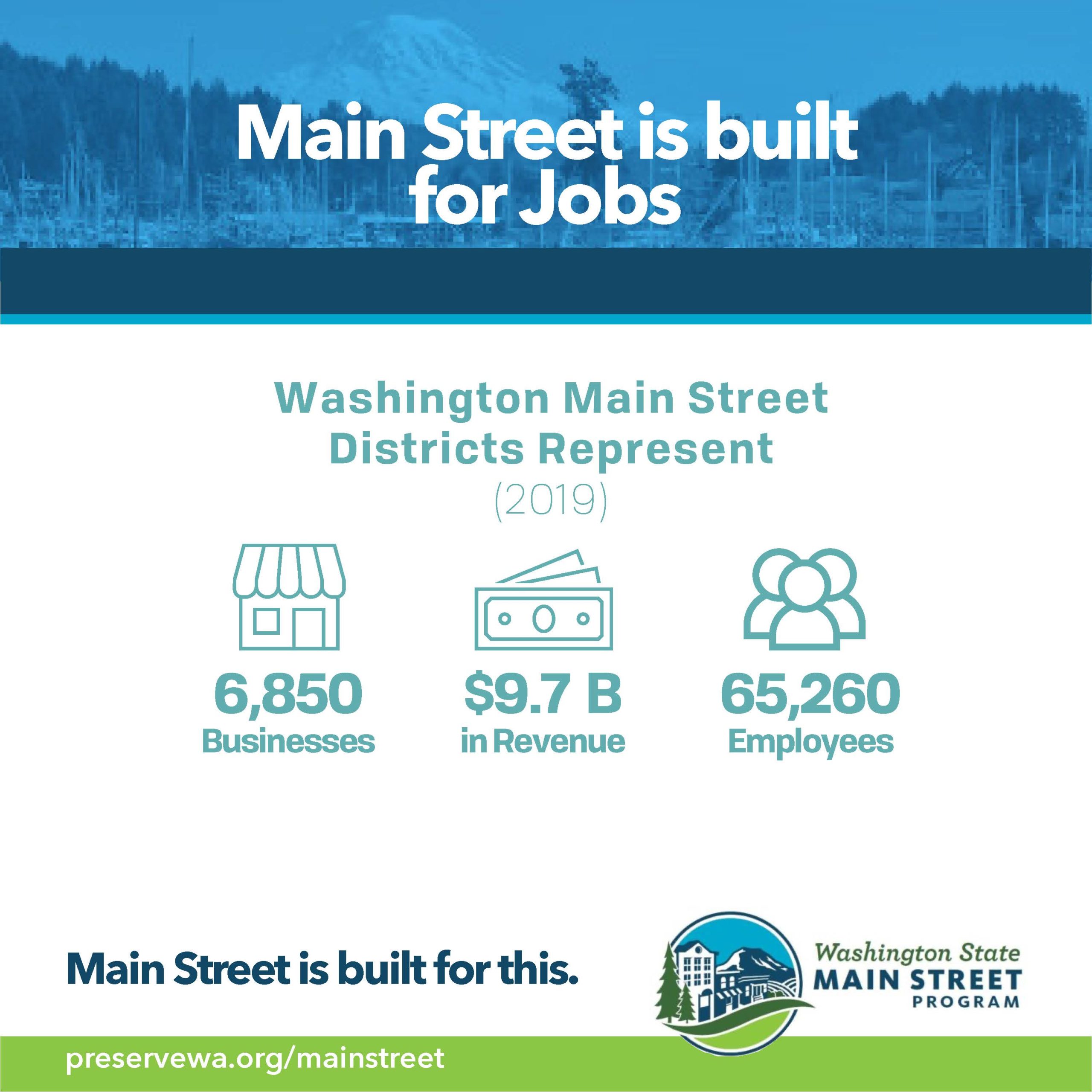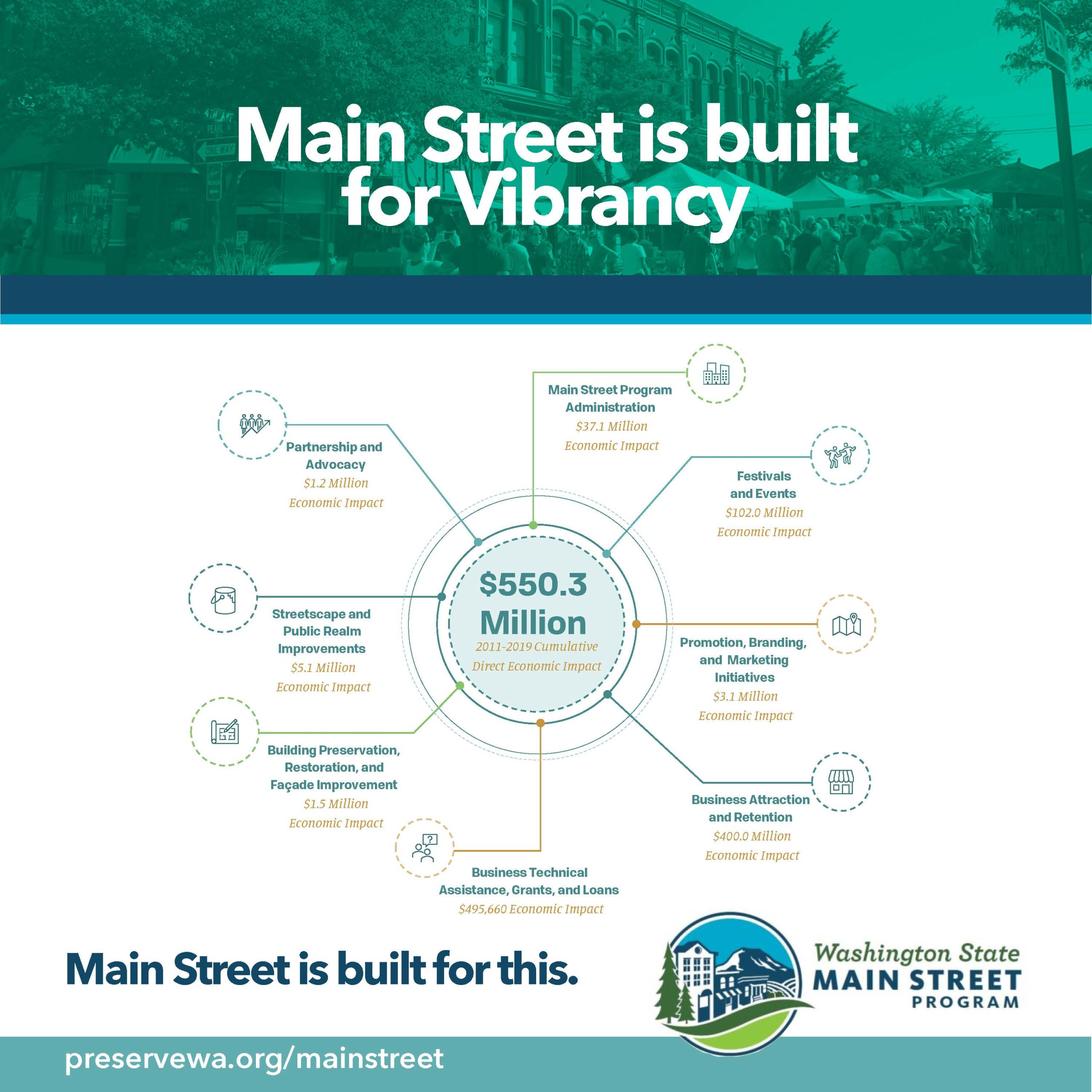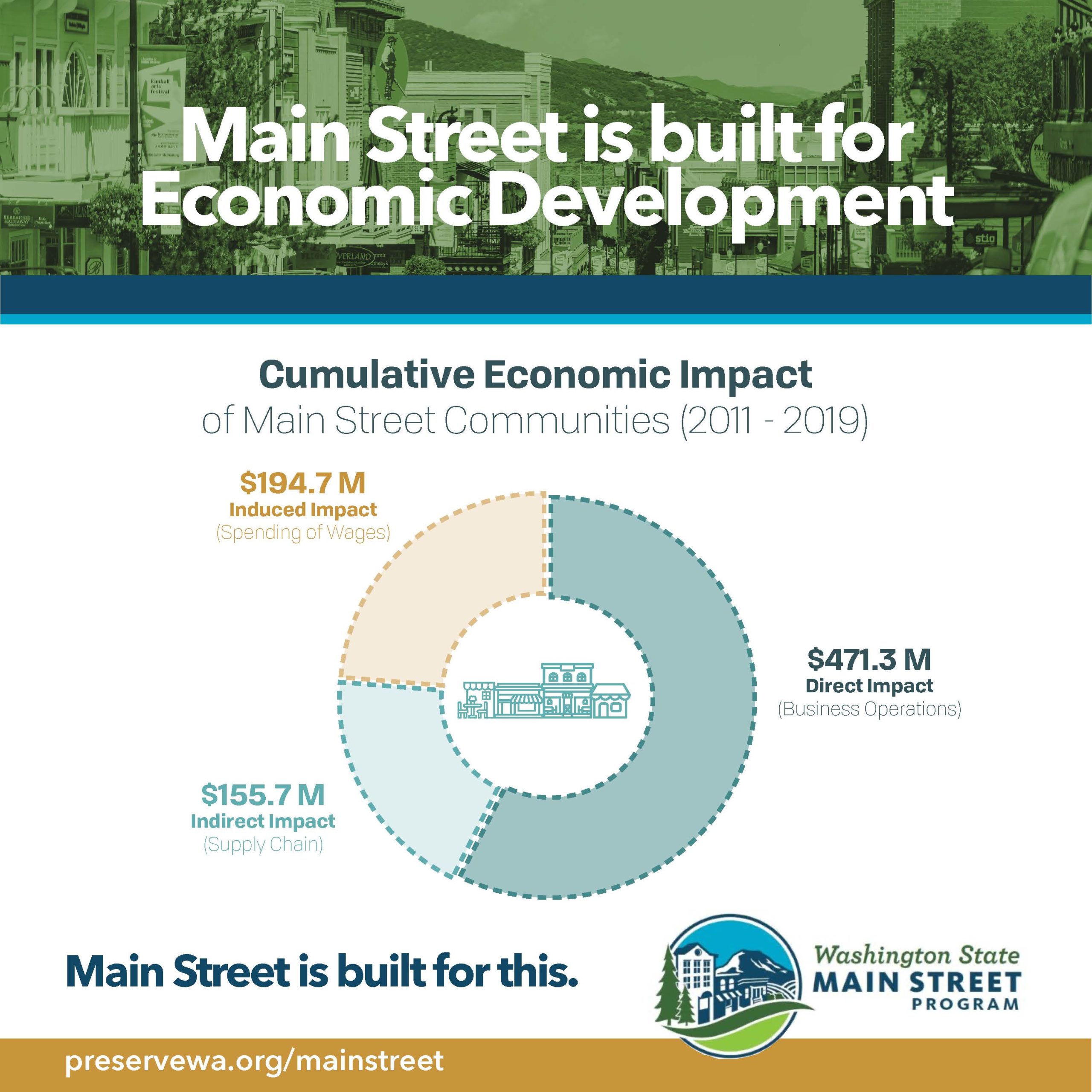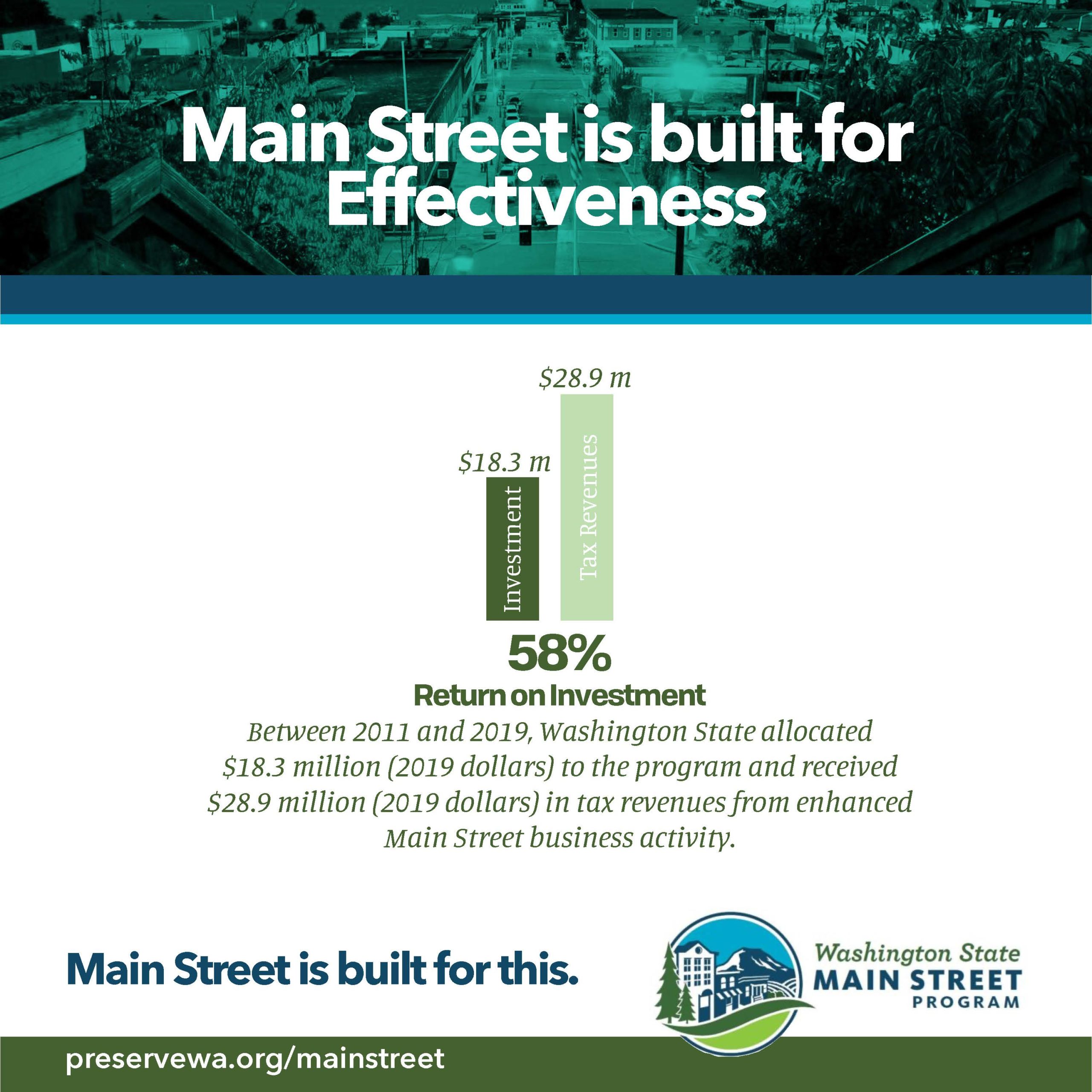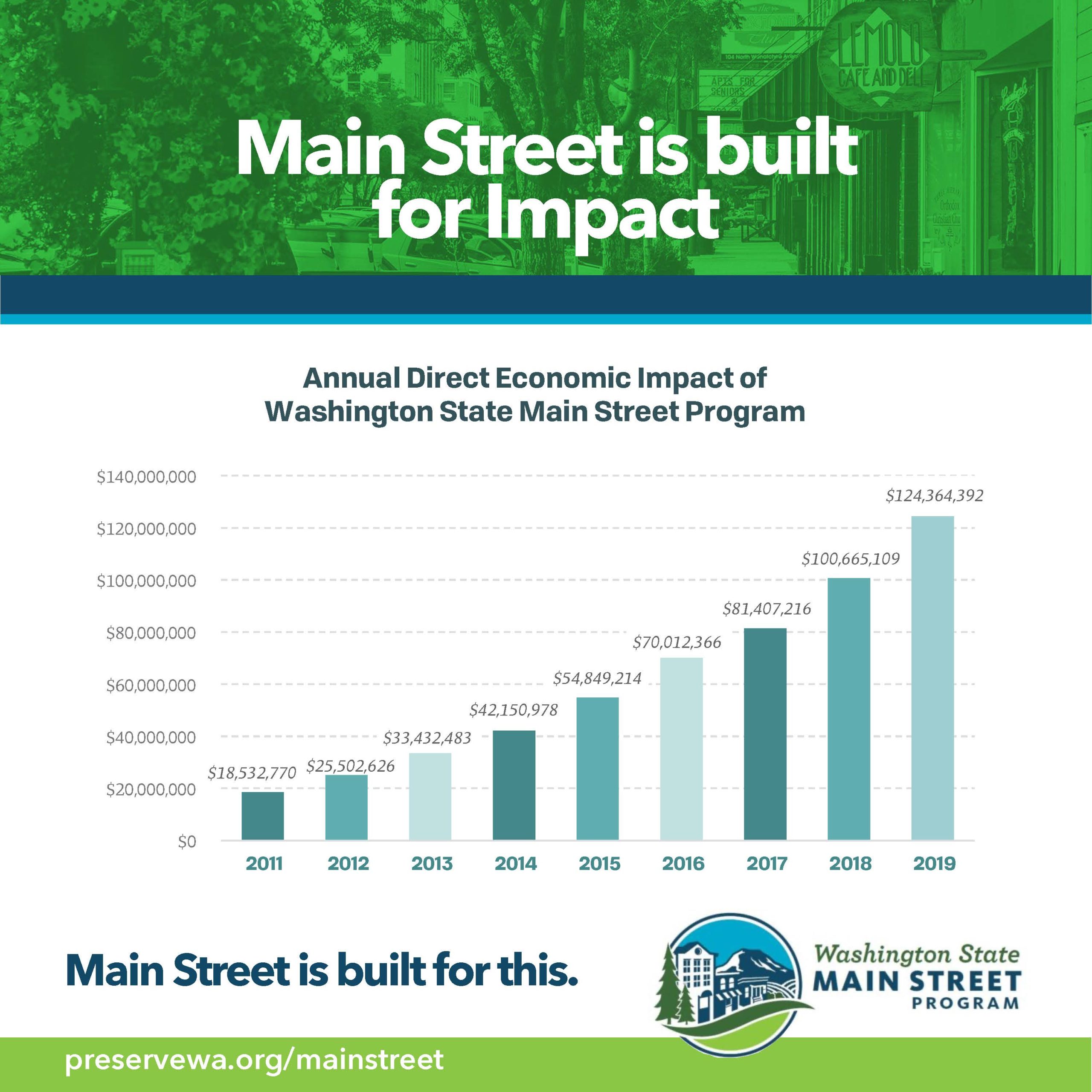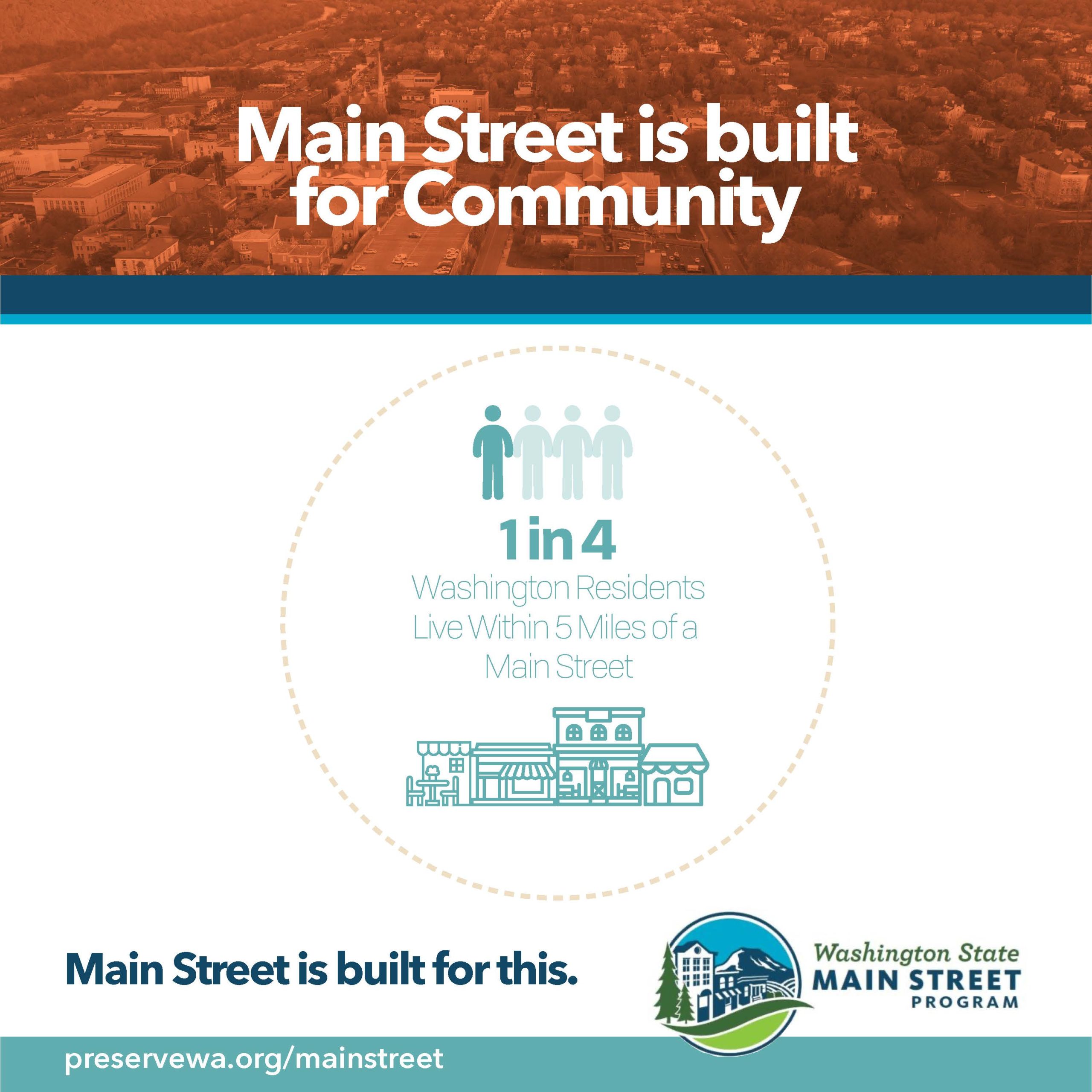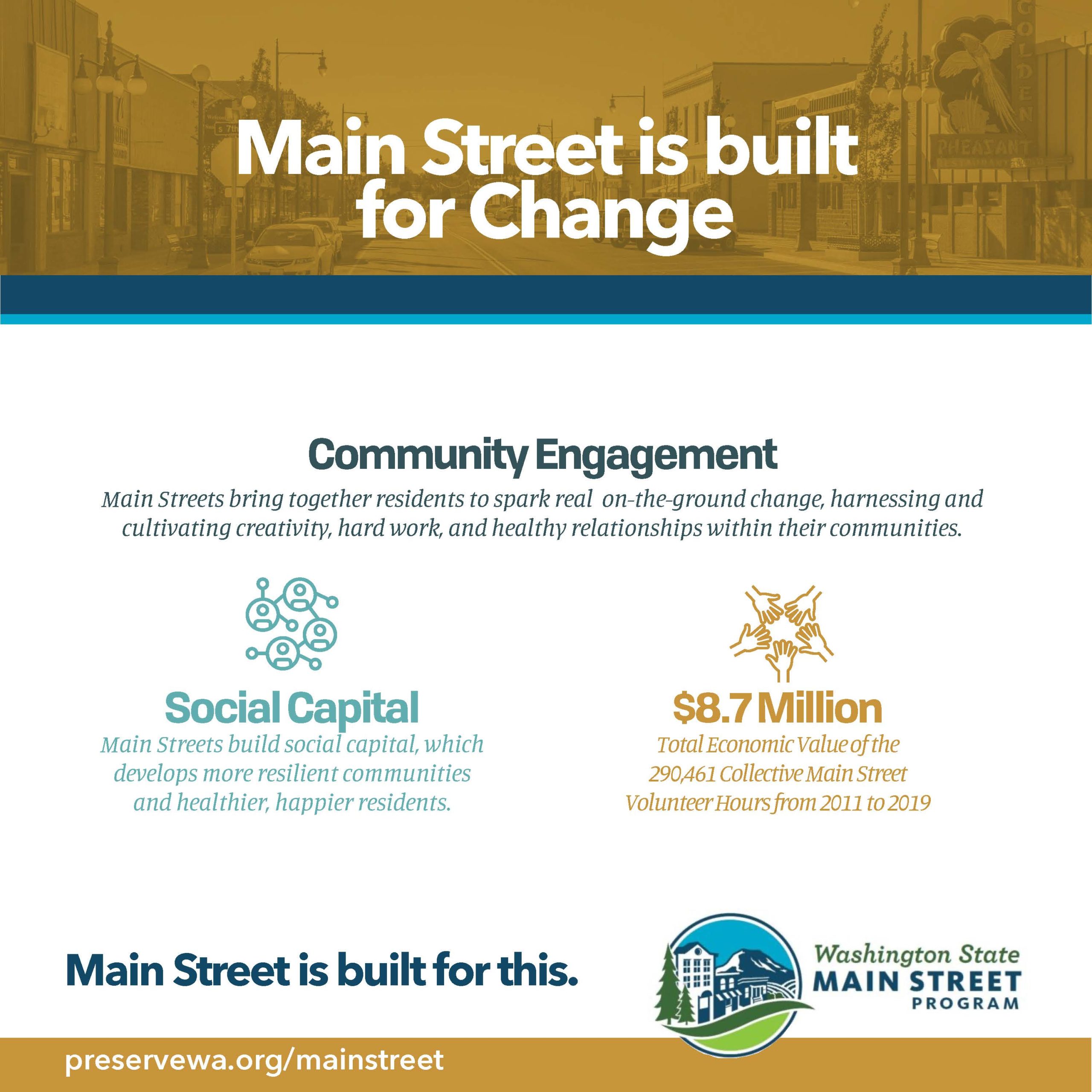Built For This
In 2019, the Washington Trust commissioned a study of the impact of Washington Main Street, a program that we manage in partnership with the Department of Archaeology & Historic Preservation. The findings, released July 2020, paint a detailed and data-driven picture of the tremendous economic, fiscal, and community impact of Main Street in Washington State.
The Main Street Approach™ is a tried and true economic development tool that capitalizes on a community’s unique assets. Even with its 40-year history as a national movement and countless stories of success in our state, we were floored to learn the full scope and depth of Main Street’s impact in Washington during a relatively short period of time (2011-2019):
- Economic Impact: Since 2011, Main Street Communities across the state helped generate $550.3 million in sales for businesses in Main Street districts, supporting 6,405 jobs at those businesses. When accounting for business-to-business transactions and employee spending, the economic impact of Main Streets includes 8,537 jobs, $397.7 million in salaries, and $821.7 million in sales.
- Return on Investment: The Washington State Main Street Program has a positive return on investment for the State of Washington. For every dollar the state has allocated to the program, the economic activity generated in Main Street communities has generated $1.58 back to the state in tax revenues. Between 2011 and 2019, Washington State has allocated $18.3 million (2019 dollars) to the program and has received $28.9 million (2019 dollars) in tax revenues from enhanced Main Street business activity.
- Community Impact: Through a focus on placemaking, community engagement, safety, equity, and sustainability, Main Streets take the lead in creating places wherein people can thrive. While not everything a Main Street Community does is quantifiable or has an immediate impact on the local economy, quality-of-life programming and partnerships are often aimed at social cohesion, historic preservation, and design to support healthy local communities.
- Social Capital: Main Streets foster interpersonal connections and social contact in their communities. This type of “social capital” generates stronger community ties, strengthens networks of connection, and creates lasting social infrastructure in the commercial districts and downtowns across the state. Main Street Communities reported that their programs play significant impacts in helping to create spaces for people to gather and interact; a sense of community connection, identity, and pride; and a safe, vibrant, and inclusive downtown.
We have known it all along and can now say it even more boldly with the backing of the data and detailed analysis provided through this study: Main Street is built for resilience, effectiveness, vibrancy, and change. We leverage unique assets and, through the magic of engagement and resourcefulness, create neighborhoods that support small businesses and foster healthy communities. Main Street is an investment in our shared past, present, and future.

